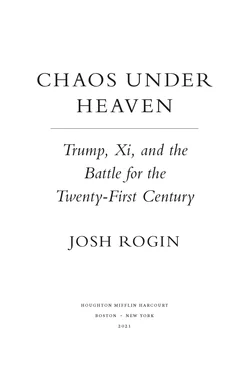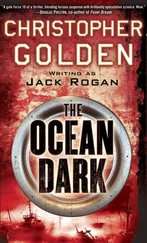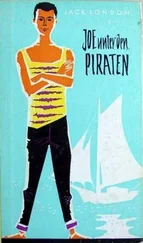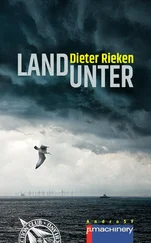Those fighting inside the government to move the China policy had to pay attention to the weather because it provided a political context for what they could or could not do. It also greatly affected Trump’s attitude and, by extension, raised or lowered his tolerance for actions that might anger Beijing, settling a ceiling for a host of other China-related policies. Whenever Beijing wasn’t playing nice on the trade negotiations, Trump lifted the ceiling and allowed the government to do more on whatever China issues were up. And then, when negotiations got tense or close to a deal, the ceiling was lowered again.
In the West Wing, the pro-trade, antitariff officials like Steven Mnuchin, Gary Cohn, Rob Porter, and the self-appointed adult supervisors like John Kelly, Rex Tillerson, James Mattis, and H. R. McMaster, won more battles in the first eight months of the administration than the China hawks. They had control of the process and better access to the president, and frankly, they were in positions that far outweighed their opponents’ in terms of rank and authority.
But across the street, in the Old Executive Office Building—and in other government buildings around Washington—the China hawks were playing a longer game.
Peter Navarro and Steve Bannon, before his firing, had started holding their own separate China strategy sessions in a conference room near Navarro’s office in the Old Executive Office Building. And they began networking, inviting in officials from around the government who were like-minded on China: people like Admiral Harry Harris and air force brigadier general Robert Spalding.
Spalding had come onto the National Security Council staff in April after serving only four months as the US defense attaché at the embassy in Beijing. The following year, he would be pushed out of the administration due to a mix of personality clashes and an industry lobbying campaign against his idea to have government help build a secure 5G telecom network. But in the first year, he was one of the Superhawks and an active member of the group.
Similar groups were forming in other parts of the national security bureaucracy as well. Two or three levels down from the politicians, there were officials in the State Department, Department of Defense, Justice Department, intelligence community, and elsewhere who had been banging their heads against the wall for years trying to push action on various China-related issues. They had been tracking the politics above them, knowing this was perhaps their chance to finally get their various departments and agencies to get tougher on China. But they knew there would be bureaucratic and institutional resistance at each and every stage.
The China officials two levels down, working at national security agencies, in congressional offices, and throughout the law enforcement and intelligence community, weren’t focused on trade. They were focused on national security. More specifically, they were focused on the issue of China’s audacious influence operations inside the United States. The probtem was, there was no forum within the government where they could discuss it, much less deal with it. So these officials (unofficially) created one.
“This Is Our Time to Stand”
The secret group fighting China’s influence operations campaign inside the United States met in a redbrick townhouse a few blocks from Capitol Hill. The group had no name and no membership list. The participants were not there in any official capacity. They convened around a common mission: to wake up the country to a new kind of threat—and devise a plan to fight back.
The host was Dimon Liu, known publicly for her longtime affiliation with the Voice of America, the US government-funded international broadcasting agency, but known privately as a leader in Washington’s complicated Chinese dissident movement. Liu emigrated from China decades ago. The daughter of a prominent family on the losing side of the Chinese Revolution, she served as a rare and important connection between Washington and what was left of the prodemocracy movement outside mainland China. Liu loved her birth country but hated its current rulers. She, more than most, knew what they were capable of. As a child, she had suffered through the famine of the Great Leap Forward. She was determined to do anything she could to convince Americans to come to terms with the true character of the Chinese Communist Party, the sheer cruelty the party’s security apparatus was capable of, and the dire threat China under CCP leadership posed to the United States. The Tiananmen Square massacre in 1989 persuaded her to abandon her teaching and her architecture practice in Hong Kong and move to the United States. If the world was going to stand up to the CCP and for the Chinese people, then it would begin in Washington.
Her house held enough souvenirs of her old life in Hong Kong and travels through Asia to account for at least two lifetimes. By the time I arrived on a Thursday evening in mid-January 2018, the house was filled with the smell of the Guangdong- and Hakka-inspired Chinese dishes that Liu had prepared for the occasion. Around twenty people were already mingling and noshing. I recognized some of them—two White House officials, congressional staffers, a think tank expert, a tech industry insider, an FBI agent. Some introduced themselves as the night went on—often without saying exactly which agency they worked for during the day. And although it was Liu’s house, the meeting belonged to Peter Mattis, a young man who held no official title and represented no government agency.
Mattis, by coincidence the nephew of Defense Secretary James Mattis, was the founder and the leader of this group. Tall, skinny, and bespectacled, in his late thirties, he had been a CIA counterintelligence analyst on China before leaving the agency to work in the private sector. Mattis may have left the CIA, but he never left the fight.
Mattis and I first met over a decade ago. We were both part of a twentysomethings’ networking group called Young Professionals in Foreign Policy, the kind of thing you would go to on a Tuesday night in DC to trade business cards or seek out Washington connections of a romantic nature. Peter was never a source, but he became a friend. Fifteen years later, that friendship provided enough trust for him to invite me into his quiet meeting.
Later, I would dub the group the Bingo Club, a reference to a similar group of cops, spies, and experts who convened secretly in San Francisco in the late 1980s to confront the urgent espionage threat China posed at that time. But this new generation of the Bingo Club was designed to confront a new kind of challenge.
“First, thank you all for joining us for a conversation about Chinese Communist Party influence inside the United States and how to deal with it,” Mattis said to start the meeting.
In his soft-spoken, matter-of-fact staccato, Mattis laid out the problem set. The CCP had been building political influence in the United States to create the opening for China’s rise. Beijing’s campaign, endorsed by the highest levels of the Chinese government, was complex, well organized, extremely well-funded, and growing each day.
The CCP was waging a type of political warfare, he explained, a mix of information operations, influence peddling, propaganda, and old-fashioned espionage with a high-technology twist. It was directed at all parts of American society: our educational institutions, our technology labs, our media, our industry, our stock markets, and of course, our politics. By operating in the gray zones between soft power and hard power, between covert and overt operations, China’s leaders had been able to target for influence the sectors of American society whose strength underpins our national power and our national identity—the antibodies in our democracy that respond to threats. The CCP was not simply trying to compete with America’s vision for the global world order. Beijing was trying to change our ideas from within, using American institutions to promote the CCP’s interests. And our government had no idea what to do about that.
Читать дальше











